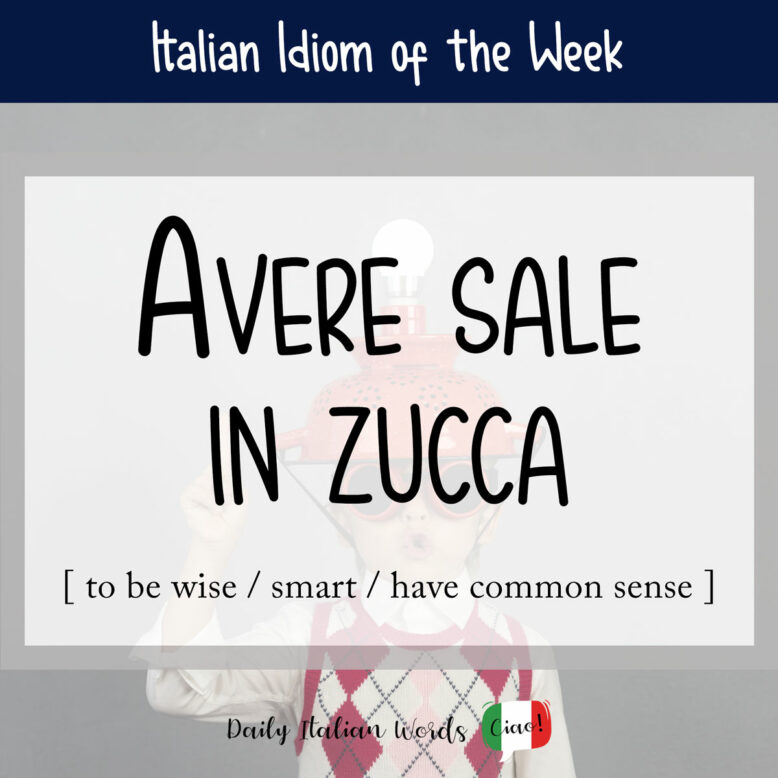In idiomatic expressions, it’s common for Italians to use the word zucca, which means pumpkin, gourd, or squash, to draw comparisons to human heads and brains. An example of such an idiom is “avere sale in zucca,” which translates literally to “to have salt in one’s gourd.”
It is used to describe someone who is bright, wise and in possession of common sense, and is close in meaning to the English idiom “to have one’s head on straight”.
Avere sale in zucca
To be wise / smart / have common sense

According to The Green Revolution, the origin of this expression is very ancient, tracing back to ancient Rome. Sale (salt), at the time, was crucial for food preservation and was so valuable that it was considered a currency. The Romans used hollowed-out pumpkins as containers to preserve the salt, and for this reason, having lots of salt inside a pumpkin came to symbolise wealth, while little salt indicated poverty. In the modern day, avere sale in zucca simply means that you have great intellectual “wealth.”
Mio fratello ha molto sale in zucca.
My brother has his head on straight.
Likewise, you can use the negative equivalents, avere poco sale in zucca (“to have little salt in one’s head”) or non avere molto sale in zucca (“to not have much salt in one’s head”) to describe someone who isn’t particularly bright or lacks common sense.
Ha poco sale in zucca ma gli vogliamo bene lo stesso.
He isn’t very bright but we love him anyway.
Here are some other expressions containing the word zucca when it means “head” or “brain/mind”.
- fuori di zucca = out of one’s mind
- perdere la zucca = to lose one’s mind
- avere la zucca vuota = to be an airhead / numbskull (literally “to have an empty gourd”)
- rompersi la zucca = to think hard about something (literally “to break one’s gourd”)
- avere la zucca piena di paglia = to be stupid (literally “to have a gourd full of straw”)
Heather Broster is a graduate with honours in linguistics from the University of Western Ontario. She is an aspiring polyglot, proficient in English and Italian, as well as Japanese, Welsh, and French to varying degrees of fluency. Originally from Toronto, Heather has resided in various countries, notably Italy for a period of six years. Her primary focus lies in the fields of language acquisition, education, and bilingual instruction.


